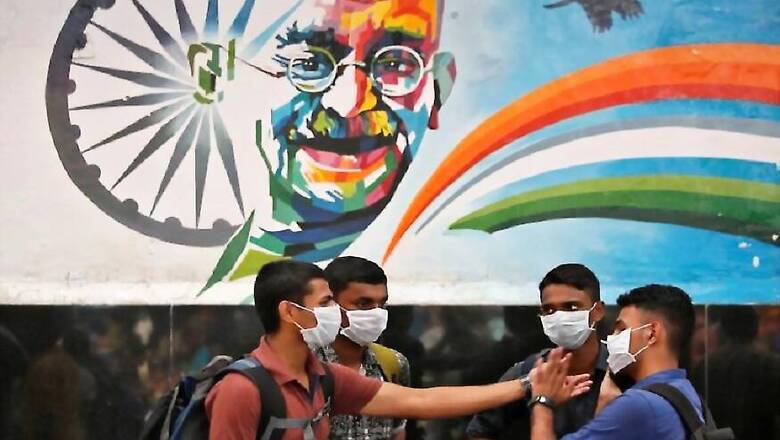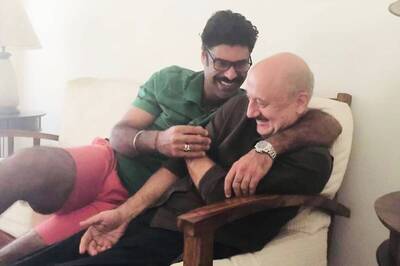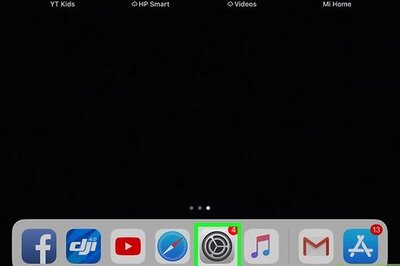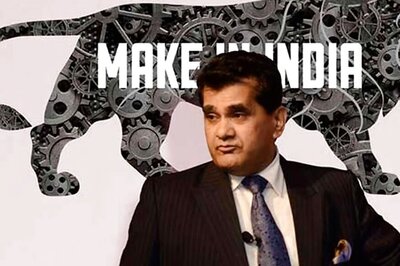
views
New Delhi: On a usual day, it took Dr Sanjeev Choubey more than 30 minutes to commute a distance of just over six kilometres between his home in Shanghai to St Michael Hospital where he works as a general practitioner.
However, during the lockdown enforced to curb the spread of coronavirus, Choubey reached his hospital in seven minutes flat. “You can imagine the extent of the lockdown based on how swift my commute became,” he said.
Choubey, a resident of Noida, has been living in Shanghai for eight years and stayed back, when the Covid-19 outbreak began, to continue working at the hospital. He is the medical director of internal medicine and specialises in general medicine and ailments such as diabetes, hypertension and infectious diseases.
Having experienced the lockdown and patients from up close, Choubey feels locking down Hubei province and other major cities in China was absolutely essential to control the spread of the virus. However, he is quick to add that "discipline of the citizens, surveillance and strict enforcement" made the lockdown a success.
Chinese authorities used surveillance cameras to track citizens who were ordered to be in quarantine and used facial recognition technology to even haul up those moving around during the period.
Choubey said it is important for India to now start screening of domestic travellers as well. In China, he says, the governments at both central and provincial levels strictly enforced screening of domestic passengers travelling in railways and at airports.
People were also put in quarantine due to screening at the railway stations and domestic airports. This helped contain the virus because thousands had left Hubei province after the lockdown came into the province from January 23.
“We cannot ignore domestic passengers who are still travelling to other cities and states from places where cases have been detected. Looking at the rise in cases, I feel there will be a spike in infections by the end of this month,” he said.
Choubey said the Indian Council of Medical Research (ICMR) ought to take random samples of pneumonia-like illness from near places where patients of Covid-19 reside.
Wuhan, the capital of Hubei province in central China, was the epicentre of the outbreak that caused the infectious Covid-19 disease. Chinese authorities and scientists have linked the spread of the virus to a wet market in Wuhan that sells live animals, including exotic species such as bats and civet cats.
Choubey said it will be extremely difficult to implement a Wuhan-style lockdown in Indian cities because of the different nature of communities and governments. He stressed that people in China cooperated with the government exceptionally well despite the hardships.
“Here the situation was so difficult that relatives and friends were turning against each other. Government identity cards were used along with Artificial Intelligence to track movements. People were not allowed to enter the apartment building complex of a friend or relative. You had to meet them outside. But it helped contain the virus. Tomorrow, after weeks, we may even stop wearing masks,” he said.
On Thursday, Wuhan did not report a single new case of Covid-19, which could be attributed to local transmission. However, China continues to record new cases and the fresh ones are linked to travellers who returned from the United States and Europe where the number of cases is still on the rise. As of Thursday, China had recorded 81,174 cases and of them, 3,242 had died.
Speaking on the virus and infections, Choubey said initially all reports in December and early January were about rising cases of mild and severe pneumonia. Later it was discovered in Wuhan that it is a new virus.
“At the outset, the flu season was on. So, nobody was quick to find out what was happening. Cases of flu and pneumonia are common here in December and January. Our team at the hospital was monitoring developments closely and soon we got to know like others that it was a new virus,” said Dr Choubey.
Describing the symptoms, Choubey said the onset of infection is marked by symptoms such as dry cough in 70% of the cases as per his observation. Fatigue and fever sets in after that and smokers, alcoholics, those suffering from hypertension, heart ailments and diabetes are at risk, he said.
“I would like to tell people back home that we should not take social distancing lightly. It will be tough and we may have to sacrifice," he added.




















Comments
0 comment